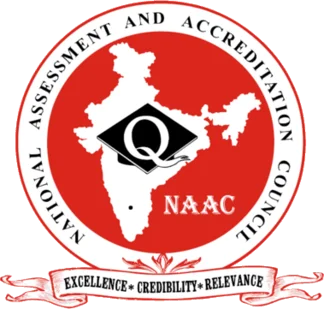Nepali
Our Departments
Announcements
Notice Closure of College Due to Shab-e-Barat
Important Notice Regarding College Closure
Notice Regarding Annual Cultural Programme 2026
Notice Regarding MS-Excel Practical Examination
About The Department
Year of Establishment: 1988
Our Vision
The Department of Nepali Language and Literature could have a vision aimed at celebrating, preserving, and advancing the richness of Nepali language and its literary heritage. Here’s a possible vision statement:
“Our vision is to be a leading academic institution dedicated to the exploration, preservation, and promotion of Nepali language and literature in all its forms. We envision a dynamic learning environment where students, scholars, and enthusiasts engage deeply with the diverse literary traditions, linguistic nuances, and cultural expressions embedded within the Nepali heritage. Through rigorous research, innovative pedagogy, and community engagement, we strive to cultivate a new generation of proficient linguists, critical thinkers, and cultural ambassadors equipped to navigate the complexities of the globalized world while staying rooted in the essence of Nepali identity. Our vision extends beyond academic boundaries, fostering collaborations and partnerships that elevate the visibility and impact of Nepali language and literature on the world stage, inspiring cross-cultural dialogue, empathy, and mutual understanding
Mission
The mission of the Department of Nepali Language and Literature could revolve around several key objectives aimed at fulfilling its vision. Here’s a possible mission statement:
“Our mission is to provide comprehensive education, conduct impactful research, and engage in community outreach to promote excellence in the study and appreciation of Nepali language and literature. Through rigorous academic programs, we aim to equip students with linguistic proficiency, analytical skills, and cultural insights necessary for personal and professional success in a diverse and interconnected world. We are committed to fostering a nurturing and inclusive learning environment that values diversity, fosters creativity, and cultivates a lifelong love for Nepali language and literature. Our faculty are dedicated to advancing knowledge through cutting-edge research that explores the historical, social, and aesthetic dimensions of Nepali literature, contributing to the broader academic discourse. Furthermore, we endeavor to actively engage with local communities, cultural institutions, and governmental agencies to promote the preservation and revitalization of Nepali language and literary traditions, ensuring their continuity and relevance for future generations.”
Department Rules
Academic Integrity
All students are expected to uphold the highest standards of academic integrity in their coursework, research, and interactions within the department. Plagiarism and cheating are strictly prohibited and may result in disciplinary action.
Attendance and Participation
Regular attendance and active participation in classes, seminars, and departmental events are essential components of the learning experience. Students are expected to attend all scheduled classes unless excused for valid reasons.
Respectful Conduct
All members of the department, including students, faculty, and staff, are expected to treat each other with respect and professionalism. Discriminatory behavior, harassment, or any form of intimidation will not be tolerated.
Language Proficiency
Students pursuing degrees or certificates in Nepali language and literature must demonstrate proficiency in the Nepali language through standardized tests or departmental assessments. Proficiency requirements may vary based on program and level of study.
Research Ethics
Faculty and students engaged in research activities must adhere to ethical guidelines and standards of conduct, including obtaining appropriate permissions for data collection, ensuring confidentiality of participants, and accurately representing research findings.
Use of Department Resources
Departmental resources, including library materials, computer labs, and audiovisual equipment, are to be used responsibly and in accordance with departmental policies. Priority may be given to academic activities and research projects.
Timely Submission of Assignments
Students are expected to submit assignments, papers, and other course-related materials by the specified deadlines. Late submissions may result in grade penalties unless prior arrangements have been made with the instructor.
Professional Development
Students are encouraged to take advantage of opportunities for professional development, including internships, conferences, and workshops related to Nepali language and literature. The department may provide support and guidance in securing such opportunities.
Feedback and Evaluation
Feedback from instructors and peers is an important aspect of the learning process. Students are encouraged to actively seek feedback on their work and to participate constructively in evaluations of their peers.
Compliance with University Policies
All department members are expected to comply with university policies and regulations governing academic affairs, student conduct, and other relevant areas. Failure to comply may result in disciplinary action by the department or university authorities.
Distinctiveness
Holistic Study
The department offers a comprehensive approach to the study of Nepali language and literature, encompassing linguistic analysis, literary criticism, cultural studies, and historical perspectives. By integrating these disciplines, students gain a deep understanding of the multifaceted nature of Nepali expression.
Cultural Immersion
The department provides immersive experiences that go beyond the classroom, offering opportunities for students to engage directly with Nepali culture through events, festivals, and community partnerships. This hands-on approach fosters a deeper appreciation and understanding of Nepali heritage.
Interdisciplinary Exploration
Recognizing the interconnectedness of language, literature, and culture, the department encourages interdisciplinary exploration, allowing students to draw insights from fields such as anthropology, sociology, history, and linguistics to enrich their understanding of Nepali identity and expression.
Research Excellence
Faculty members are engaged in cutting-edge research that advances knowledge in the field of Nepali language and literature. Their diverse areas of expertise contribute to a vibrant research culture within the department, generating new insights and perspectives that inform teaching and scholarship.
Global Perspective
While rooted in Nepali culture, the department embraces a global perspective, exploring the transnational dimensions of Nepali language and literature. Through comparative studies and cross-cultural exchanges, students gain insights into the universal themes and relevance of Nepali expression in a global context.
Community Engagement
The department actively engages with Nepali-speaking communities locally and globally, serving as a bridge between academia and society. Through outreach programs, language initiatives, and cultural events, the department fosters connections and partnerships that enrich both academic scholarship and community life.
Innovative Pedagogy
Embracing innovative pedagogical approaches, the department leverages technology, experiential learning, and collaborative projects to enhance student engagement and learning outcomes. By adapting to evolving educational trends, the department ensures its curriculum remains relevant and responsive to the needs of students and society.
Add-on Courses
Message From HOD
The Department of Nepali at Kalipada Ghosh Tarai Mahavidyalaya (KGTM) has been a significant part of the institution since its establishment. The department offers both Honours and General courses as part of the B.A. program, which are designed to provide students with a comprehensive understanding of Nepali language, literature, and culture. The department’s commitment to fostering a deep appreciation for Nepali literary traditions while equipping students with critical analytical skills. For academics or researchers interested in South Asian studies, Nepali language and literature offer valuable avenues for exploration. It opens up opportunities to study the region’s history, society, politics, and cultural dynamics.
The department aims to create a dynamic learning environment that encourages students to engage with the rich literary heritage of Nepali Language and the Nepali-speaking world. Proficiency in Nepali language can enhance career prospects, especially in fields such as international relations, diplomacy, journalism, translation, tourism, and non-profit work focused on the wider Himalayan region.
The importance of holistic education, integrating cultural and extracurricular activities to enrich the academic experience. This approach is intended to prepare students for various career paths, including academia, translation, journalism, and other fields where proficiency in the Nepali language and an understanding of its literature are essential.
Dr. Basudeo Thapa
HOD || Dept. of Nepali
Study Materials on Departmental Library
Faculty Members
SACT-I || Department of Nepali
Department of Nepali || SACT-1
Assistant Professor || Department of Nepali






